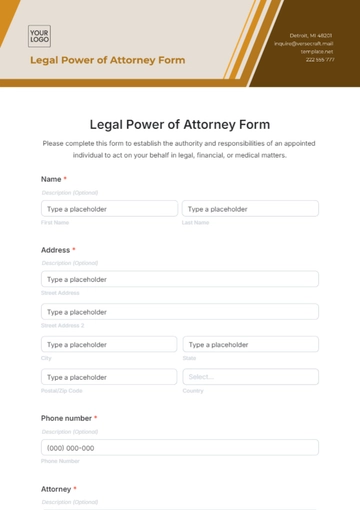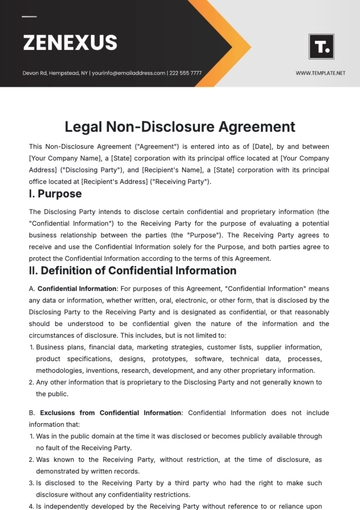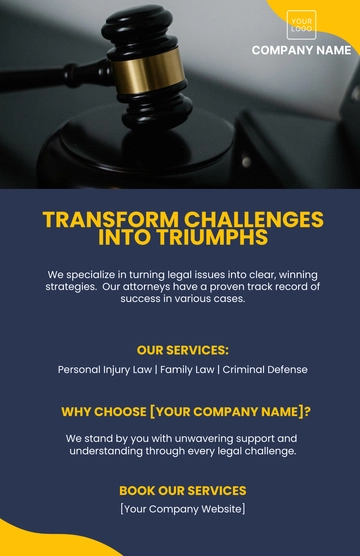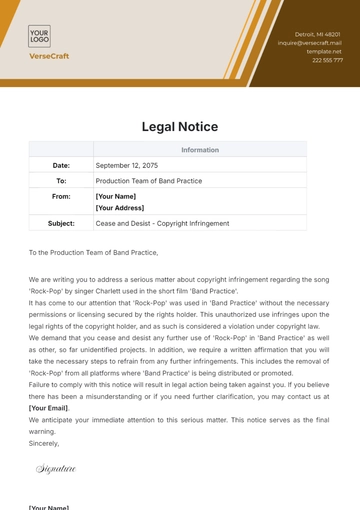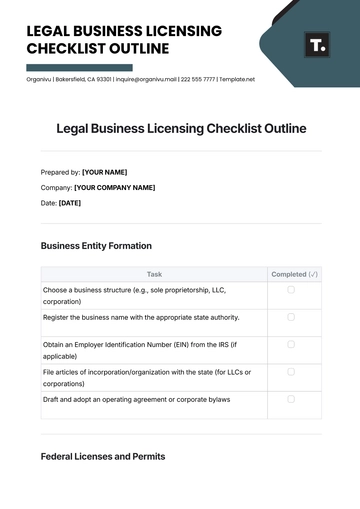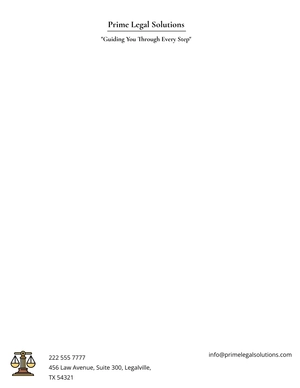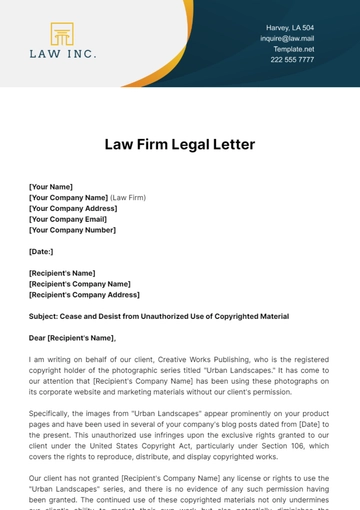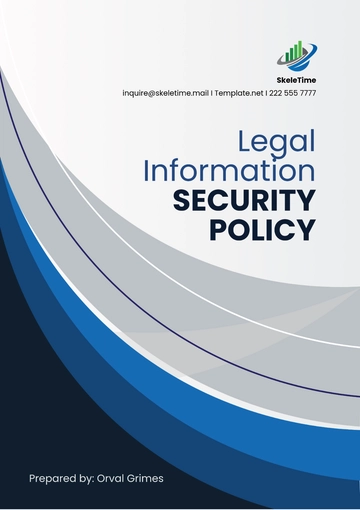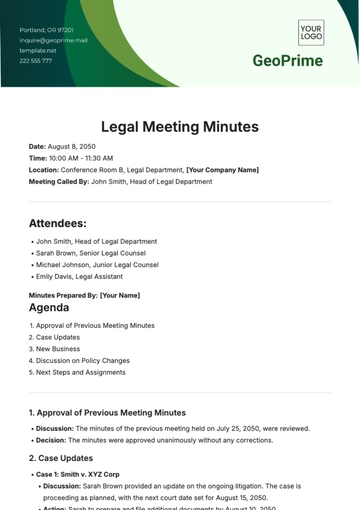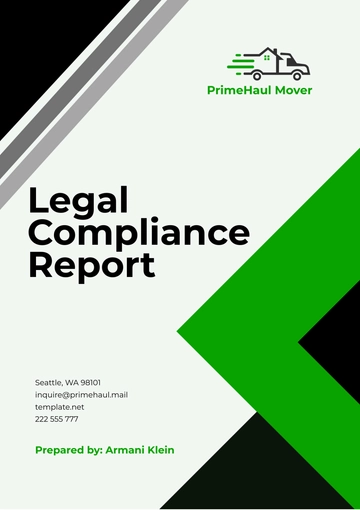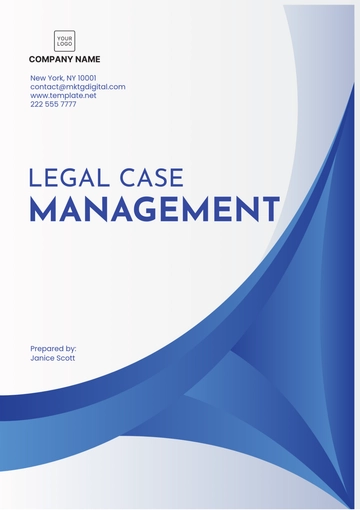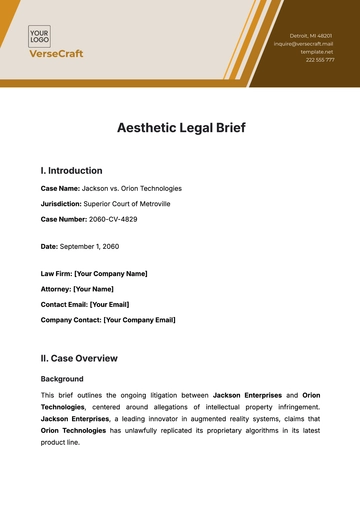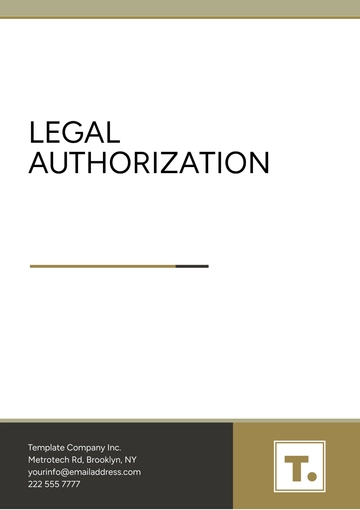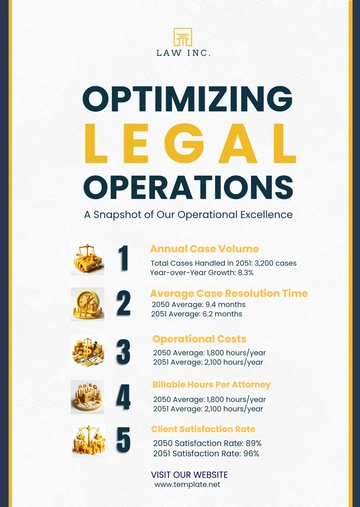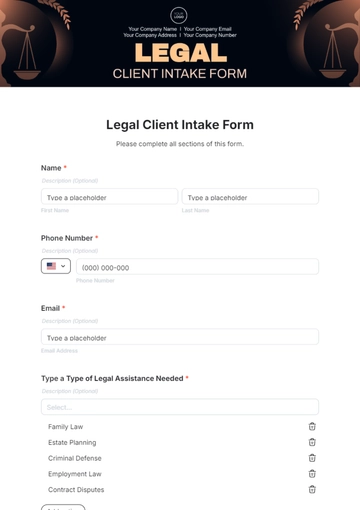Free Legal Case Management
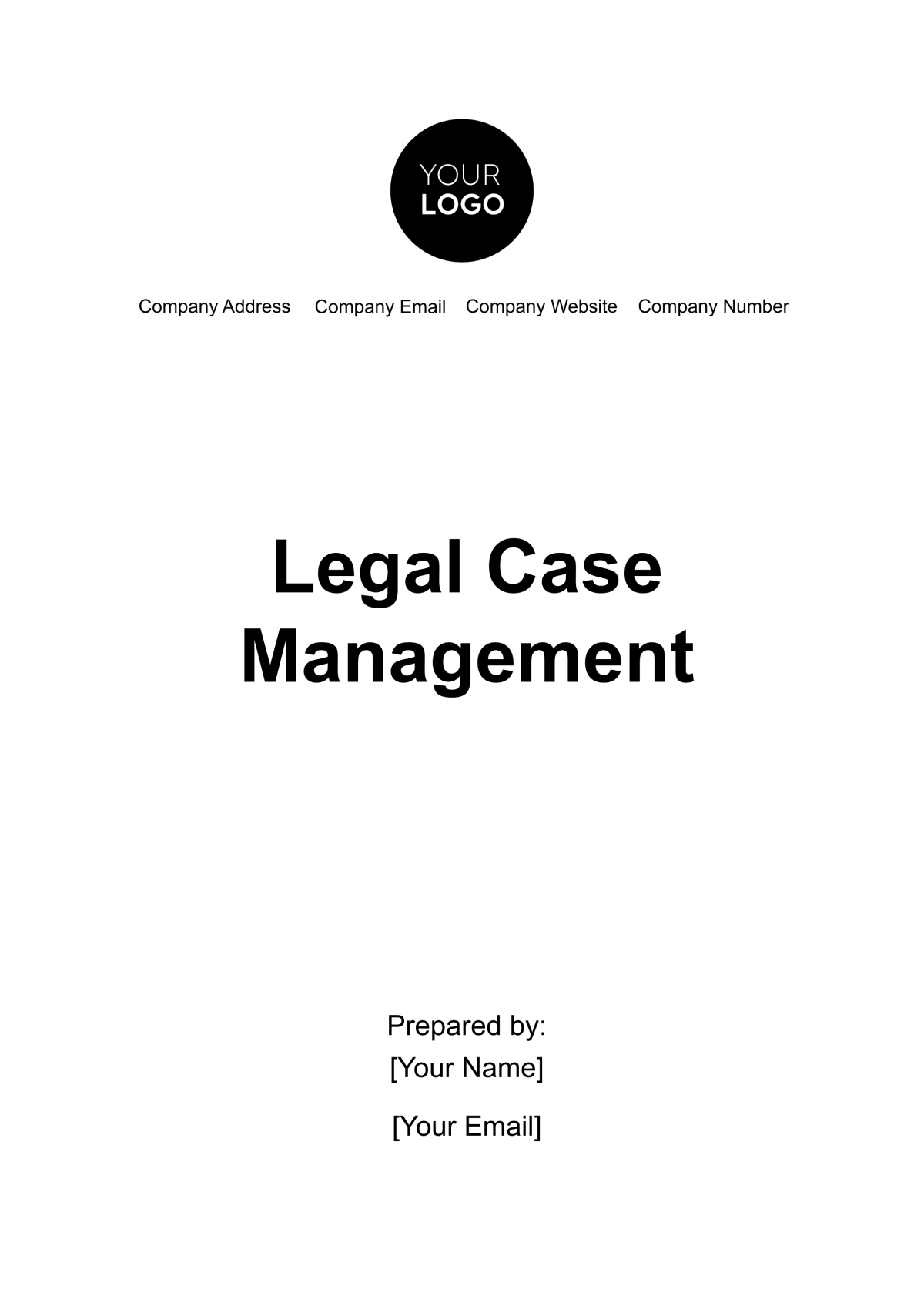
I. Introduction
A. Overview
Legal Case Management involves organizing, managing, and tracking legal cases efficiently. It serves as a comprehensive framework for handling the lifecycle of a legal case, from initial intake to resolution. This plan aims to provide a detailed structure for managing legal cases within [Your Company Name], ensuring that every case is handled with utmost diligence, professionalism, and efficiency.
B. Purpose
The primary purpose of this Legal Case Management Plan is to streamline the case management process, minimize risks, and optimize resource allocation. By implementing a structured approach, [Your Company Name] will enhance its ability to manage cases effectively, improve client satisfaction, and maintain high standards of legal practice. The plan outlines the procedures, tools, and roles necessary to manage cases in a manner that meets both legal requirements and business objectives.
C. Scope
This plan applies to all legal cases handled by [Your Company Name], including civil litigation, criminal defense, corporate legal matters, intellectual property disputes, and more. It encompasses all stages of case management, from initial client intake and case evaluation to court proceedings and final resolution. The plan is designed to be adaptable, accommodating the diverse legal needs of [Your Company Name] and its clients through the year 2050 and beyond.
II. Case Intake and Initial Assessment
A. Client Onboarding Process
Client Identification and Verification
Upon the initiation of a new case, the first step involves the identification and verification of the client. This includes collecting essential information such as name, contact details, identification documents, and any relevant background information.
[Your Company Name] will use secure methods to verify the identity of the client, ensuring compliance with legal and regulatory requirements.
Conflict of Interest Check
Before proceeding with the case, a conflict of interest check must be conducted. This step is crucial to ensure that [Your Company Name] is not representing conflicting interests, which could compromise the integrity of the legal process.
A detailed database will be maintained to record any potential conflicts, which will be reviewed and updated regularly.
Client Agreement and Retainer
Once the client has been identified and verified, a formal agreement outlining the terms of representation will be prepared. This agreement will include the scope of services, fee structure, confidentiality clauses, and other pertinent details.
A retainer fee will be collected based on the agreement, and the funds will be deposited in a trust account as per legal and ethical guidelines.
B. Case Evaluation and Strategy Development
Initial Case Review
After client onboarding, the legal team will conduct an initial review of the case. This review will include an assessment of the legal merits, potential risks, and possible outcomes.
The review will be documented in a Case Evaluation Report, which will serve as the foundation for developing a legal strategy.
Strategic Planning Session
A strategic planning session will be held with key stakeholders, including lead attorneys, paralegals, and any relevant experts. During this session, the team will discuss the legal strategy, resource allocation, timelines, and possible contingencies.
The outcome of this session will be documented in a Strategic Plan, which will guide the case management process.
Client Consultation
The client will be consulted to discuss the findings of the initial case review and the proposed legal strategy. It is essential to ensure that the client fully understands the approach and agrees with the proposed plan.
Any client feedback or concerns will be addressed, and necessary adjustments will be made to the Strategic Plan.
III. Case Management Tools and Technology
A. Case Management Software
Selection Criteria
[Your Company Name] will use a robust case management software that meets the specific needs of legal case management. The software must have features such as document management, task tracking, calendar integration, timekeeping, and billing.
The selection criteria will also include user-friendliness, data security, compatibility with existing systems, and scalability to handle the increasing volume of cases through 2050 and beyond.
Implementation and Training
The chosen software will be implemented across all departments involved in case management. A detailed implementation plan will be followed, including data migration, system configuration, and integration with other tools.
Comprehensive training will be provided to all users, ensuring they are proficient in using the software to its full potential. Regular refresher training sessions will also be conducted to keep users updated on new features and best practices.
Ongoing Support and Maintenance
A dedicated IT team will be responsible for the ongoing support and maintenance of the case management software. This includes troubleshooting, updates, and ensuring data security.
Regular audits will be conducted to assess the software’s performance and identify areas for improvement.
B. Document Management System
Digital Repository
A centralized digital repository will be established to store all case-related documents securely. This system will allow for easy retrieval, sharing, and collaboration among team members.
The repository will be organized by case number, client name, and document type, with appropriate access controls to maintain confidentiality.
Version Control
Version control will be implemented to track changes made to documents. This feature ensures that the latest version of any document is easily accessible and prevents confusion caused by multiple versions.
A detailed log of changes will be maintained, including who made the changes and when, to ensure accountability.
Backup and Recovery
Regular backups of all documents will be conducted to prevent data loss. The backup system will be automated and scheduled at regular intervals.
A disaster recovery plan will be in place to ensure that documents can be quickly restored in the event of data loss or system failure.
IV. Case Progress Tracking and Reporting
A. Milestone Tracking
Case Milestones
Each case will be divided into key milestones, such as discovery, filing, hearings, and settlement. These milestones will be clearly defined and tracked using the case management software.
The progress of each milestone will be regularly reviewed in team meetings to ensure that the case is on track and any delays are promptly addressed.
Task Assignment and Monitoring
Specific tasks related to each milestone will be assigned to individual team members. The case management software will be used to monitor the completion of these tasks, providing real-time updates on progress.
Regular follow-ups will be conducted to ensure that tasks are completed on time and to the required standard.
Performance Metrics
Performance metrics will be established to evaluate the efficiency and effectiveness of case management. These metrics will include time taken to complete milestones, client satisfaction, and cost management.
Regular reports on these metrics will be generated and reviewed by senior management to identify areas for improvement.
B. Client Reporting
Regular Updates
[Your Company Name] will provide clients with regular updates on the progress of their cases. These updates will be scheduled at key stages of the case and will include detailed information on completed and upcoming tasks.
Communication will be maintained through multiple channels, including email, phone calls, and in-person meetings, ensuring that clients are always informed.
Transparent Billing
Billing transparency is crucial to maintaining trust with clients. Detailed invoices will be provided, outlining all charges related to the case, including time spent, expenses, and any other fees.
Clients will have access to an online portal where they can view their billing history, make payments, and raise any billing-related queries.
Client Feedback
At the conclusion of each case, clients will be asked to provide feedback on their experience. This feedback will be used to improve the case management process and enhance client satisfaction.
A feedback loop will be established to ensure that any issues raised by clients are addressed and resolved promptly.
V. Legal Research and Case Preparation
A. Research Methodology
Primary and Secondary Sources
Legal research will involve both primary sources, such as statutes, regulations, and case law, and secondary sources, such as legal commentaries, journals, and expert opinions. The research team will be responsible for gathering and analyzing relevant information to support the case.
The use of reputable legal databases will be prioritized to ensure the accuracy and reliability of the research.
Research Documentation
All research findings will be documented in a Research Report, which will be stored in the digital repository for easy access by the legal team. This report will include a summary of key findings, references, and any relevant legal precedents.
Regular updates to the Research Report will be made as new information becomes available or as the case evolves.
Legal Memoranda
Legal memoranda will be prepared to present the legal arguments and analysis based on the research conducted. These memoranda will be used to guide the legal strategy and inform decision-making throughout the case.
The memoranda will be reviewed and approved by senior attorneys before being finalized.
B. Case Preparation and Strategy Execution
Pre-trial Preparation
Pre-trial preparation will include the gathering of evidence, preparation of witnesses, and drafting of legal documents such as motions, briefs, and affidavits. The legal team will work closely with experts and investigators to build a strong case.
Mock trials or simulations may be conducted to prepare the team and the client for court proceedings, ensuring that all aspects of the case are thoroughly rehearsed.
Discovery Process
The discovery process will involve the exchange of information between parties, including the disclosure of documents, depositions, and interrogatories. The legal team will manage this process, ensuring that all relevant information is obtained and that the opposing party complies with legal requirements.
A Discovery Plan will be developed to outline the scope of discovery, timelines, and strategies for obtaining critical evidence.
Trial Strategy
The trial strategy will be based on the findings of the legal research and the pre-trial preparation. This strategy will include the presentation of evidence, examination of witnesses, and delivery of opening and closing statements.
The legal team will work collaboratively to refine the trial strategy, making adjustments as needed based on the progress of the case and any new developments.
VI. Risk Management and Compliance
A. Risk Assessment
Identifying Legal Risks
The legal team will conduct a comprehensive risk assessment for each case, identifying potential legal risks that could impact the outcome. These risks may include adverse legal precedents, procedural errors, or unforeseen developments in the case.
A Risk Assessment Report will be prepared, detailing the identified risks and recommended mitigation strategies.
Mitigation Strategies
For each identified risk, a mitigation strategy will be developed. These strategies may include contingency plans, alternative legal arguments, or seeking expert advice.
The legal team will regularly review and update the mitigation strategies as the case progresses.
Monitoring and Reporting
Continuous monitoring of risks will be conducted throughout the case management process. Any changes in the risk landscape will be promptly reported to senior management, along with recommendations for addressing new risks.
Regular risk management reports will be generated, providing an overview of the current risk status and the effectiveness of the mitigation strategies.
B. Compliance with Legal and Ethical Standards
Adherence to Legal Standards
[Your Company Name] will ensure that all case management activities comply with relevant legal standards, including court rules, procedural requirements, and statutory obligations. The legal team will stay informed of any changes in the law that may affect case management.
Compliance audits will be conducted periodically to assess adherence to legal standards and identify areas for improvement.
Ethical Considerations
Ethical considerations are paramount in legal case management. The legal team will adhere to the highest ethical standards, including client confidentiality, conflict of interest management, and fair billing practices.
A Code of Ethics will be developed and enforced, with regular training provided to all team members to ensure they understand and comply with ethical requirements.
Client Confidentiality
Protecting client confidentiality is a top priority. All case-related information will be handled with the utmost discretion, with access limited to authorized personnel only.
Data encryption, secure communication channels, and strict access controls will be implemented to safeguard client information.
VII. Post-Case Evaluation and Lessons Learned
A. Case Closure Procedures
Final Documentation and Archiving
Upon the conclusion of a case, all final documentation will be prepared, including the settlement agreement, court orders, and any other relevant legal documents. These documents will be reviewed for accuracy and completeness before being finalized.
The case files will then be archived in the digital repository, with appropriate metadata added to facilitate future retrieval.
Client Debriefing
A debriefing session will be held with the client to review the outcome of the case, discuss any remaining concerns, and provide guidance on any post-case actions that may be required.
The client will also be provided with a final report summarizing the case, the legal strategy employed, and the outcome achieved.
Financial Reconciliation
A final financial reconciliation will be conducted to ensure that all billing is complete and accurate. Any remaining balances will be settled, and the client will receive a detailed statement of account.
Any unused retainer funds will be refunded to the client, in accordance with the terms of the client agreement.
B. Lessons Learned and Continuous Improvement
Case Review and Analysis
A post-case review will be conducted to analyze the management of the case, including the effectiveness of the legal strategy, the performance of the legal team, and any challenges encountered.
A Lessons Learned Report will be prepared, documenting key insights and recommendations for future cases.
Process Improvement Initiatives
Based on the findings of the post-case review, process improvement initiatives will be identified and implemented. These initiatives may include refining case management procedures, enhancing training programs, or adopting new technologies.
Continuous improvement will be a key focus, with regular reviews conducted to assess the impact of the implemented initiatives.
Knowledge Sharing
The insights gained from each case will be shared with the broader legal team through knowledge-sharing sessions, workshops, and internal publications. This approach ensures that the entire team benefits from the experience and that best practices are disseminated throughout the organization.
A Knowledge Management System will be established to capture and store lessons learned, making them accessible to all team members for future reference.
VIII. Conclusion
A. Summary
The Legal Case Management Plan outlined above provides a comprehensive framework for managing legal cases at [Your Company Name]. By implementing a structured and systematic approach, the company can ensure that all cases are handled with professionalism, efficiency, and attention to detail. This plan covers all aspects of case management, from client intake and case evaluation to risk management and post-case evaluation.
B. Future Considerations
As [Your Company Name] looks toward the future, the legal landscape is expected to evolve, with new challenges and opportunities arising. The Legal Case Management Plan is designed to be adaptable, allowing the company to respond to these changes and continue providing exceptional legal services through the year 2050 and beyond.
C. Commitment to Excellence
[Your Company Name] is committed to maintaining the highest standards of legal practice. This Legal Case Management Plan is a testament to that commitment, providing a roadmap for achieving excellence in case management and ensuring the best possible outcomes for clients. By continuously refining and improving our processes, we will remain at the forefront of the legal industry, delivering outstanding results for our clients and upholding the principles of justice and integrity.
- 100% Customizable, free editor
- Access 1 Million+ Templates, photo’s & graphics
- Download or share as a template
- Click and replace photos, graphics, text, backgrounds
- Resize, crop, AI write & more
- Access advanced editor
Manage your legal cases effectively with the Legal Case Management Template from Template.net. This customizable template helps you organize and track case details. Editable in our AI Editor Tool, it includes sections for case notes, deadlines, and more. Download now to streamline your case management process!
